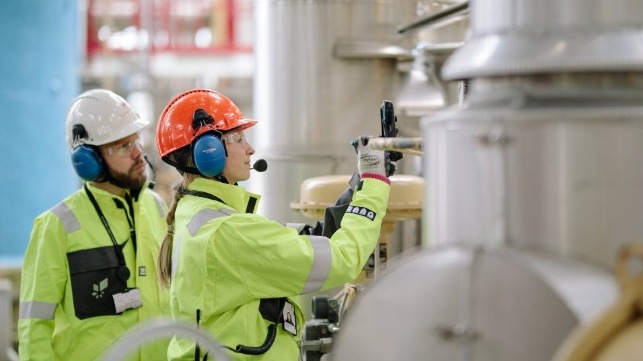Exploring Producing Hydrogen from Natural Gas with Carbon Capture

ENGIE and Equinor announce the launch of a partnership to develop joint low-carbon hydrogen activities. The French and Norwegian energy companies said they will investigate the production and market potential for hydrogen from natural gas whereby the CO2 will be captured and stored permanently offshore.
Under the terms of the memorandum of understanding between the two companies, they will investigate the development of low-carbon hydrogen value chains in Belgium, the Netherlands, and France. In the coming months, ENGIE and Equinor will also start discussions with potential customers to assess the project, as well as with stakeholders and relevant authorities.
“We believe that hydrogen and CCS will be vital if we are going to succeed with the transition,” said Grete Tveit, Equinor’s senior vice president for Low Carbon Solutions. “Collaboration and partnerships will be absolutely necessary to find the best solutions. Our two companies have complementary areas of expertise that we can utilize to develop low carbon hydrogen initiatives together.”
ENGIE and Equinor believe that it is essential to develop low-carbon and renewable hydrogen projects at scale in order to make it possible for industrial customers to significantly reduce CO2 emissions before 2030. This development of low carbon and renewable hydrogen will accelerate the construction of new hydrogen infrastructure and the repurposing of current natural gas infrastructure, thus paving the way for net zero in 2050.

that matters most
Get the latest maritime news delivered to your inbox daily.
“ENGIE firmly believes that hydrogen will play a key role in the energy transition,” said Edouard Neviaski, CEO of the ENGIE's Business Unit Global Energy Management. “We are glad to work on this project with Equinor, a long-standing partner for more than 40 years. ENGIE produces renewable hydrogen and supports the development of the market for low-carbon hydrogen. Both these technologies will be necessary to accelerate the development of a solid infrastructure and the transition to a carbon-neutral economy.”
This project is the latest in a growing number of efforts exploring the potential for hydrogen and developing the hydrogen infrastructure. Explorations are also underway on developing hydrogen plants at many of the major seaports in Northern Europe while tests are beginning on hydrogen fuel cells as a form of power for the shipping industry.
